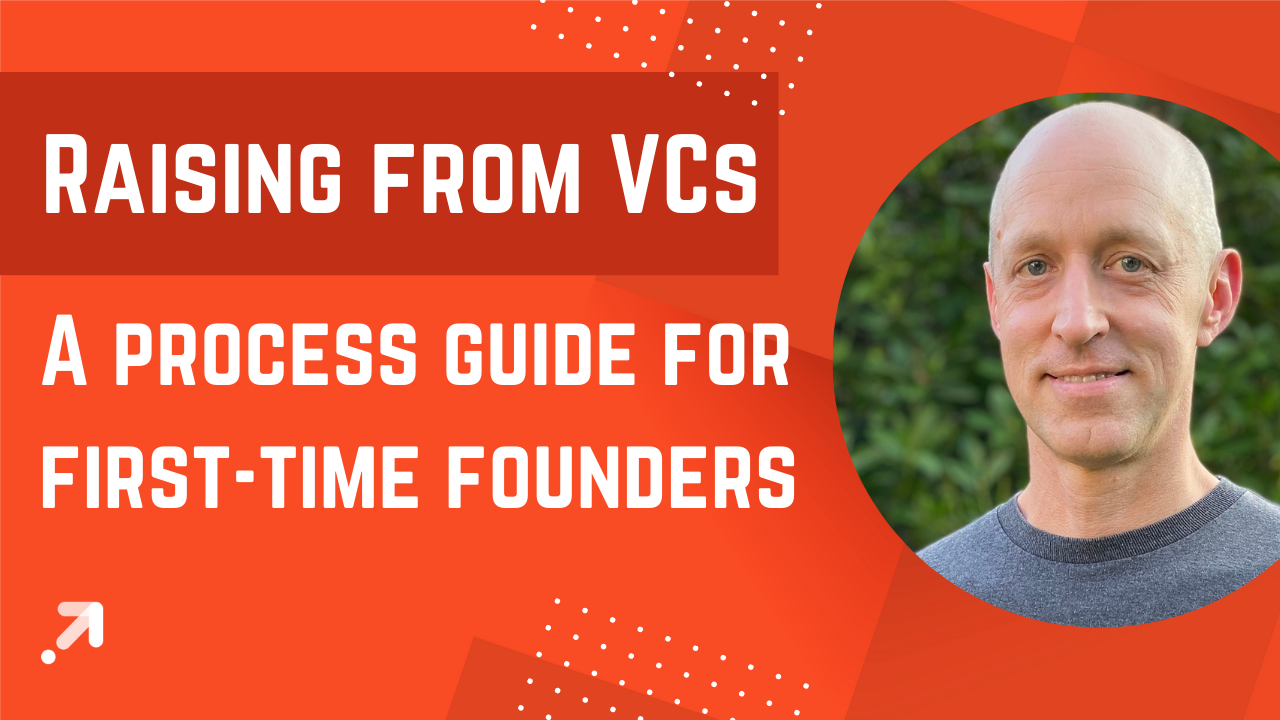
TRC 014: Raising from VCs - What to know and how to prepare
Jul 20, 2023Read time: 4 mins
Venture capital can be a vital resource for founders seeking to grow their startup.
If you are a founder considering raising from VCs for the first time, the process can be opaque at best, outright confusing at worst.
Here is our simple guide to the process to help you understand what you are in for.
It assumes you have sent a deck or got an introduction that has lead to a first meeting.
Stage 1: Initial Meeting
Behind the Scenes
Before you meet, VCs review your:
- pitch deck
- financial projections
- market opportunity
They'll discuss the potential investment among their partners and associates, assessing whether it aligns with their investment thesis (It’s good for you to do your research on this before you reach out for the first time).
Actions for Founders
Prepare to answer questions about your business, team, competitive landscape, and financial projections.
Be clear and concise and emphasise the strengths of your team.
Your personal background and reasons for starting the business will also be significant discussion points.
Stage 2: Basic Analysis
Behind the Scenes
VCs conduct a deeper analysis of your financials, product roadmap, and competitive landscape.
They will likely run financial models to project your company's growth and assess competitive threats.
It's common for VCs to talk to customers, employees, and other stakeholders during this stage.
Actions for Founders
Provide the VCs with access to your financials, product roadmap, and competitive analysis.
Be responsive to their inquiries and ready to share and defend your financial projections, including your unit economics.
Speed and accuracy of response do wonders for building confidence.
Stage 3: Due Diligence
Behind the Scenes
At this stage, VCs conduct a thorough investigation of your company, covering financial, legal, and operational aspects.
Financial due diligence includes reviewing financial statements and tax returns.
Legal due diligence involves checking contracts and intellectual property, while operational due diligence looks at the company's operations, such as product development and customer support.
Actions for Founders
Be honest and transparent, providing VCs with the necessary information and supporting documentation.
Respond promptly to questions.
Stage 4: Partner Meeting
Behind the Scenes
VC partners meet to discuss the investment opportunity - this is the investment committee or IC stage.
They weigh the risks and rewards, discuss your company's strengths and weaknesses, the potential for growth, and the terms of the investment.
Actions for Founders
Be patient as VCs need time to make a decision.
Be prepared to answer any additional questions.
After the Term Sheet: What Founders Need to Know
1. Due Diligence: Pre and Post Term Sheet
Pre term sheet diligence involves all the steps outlined above.
If all goes well, the VC firm might offer a term sheet, which outlines the proposed terms of the investment.
It’s important to know that a term sheet is non-binding. At this stage, an investor can back out at any moment.
Most investors who give you a term sheet will want to make an investment, but they will dig deeper for any red flags that mean they shouldn’t invest.
After the term sheet is agreed upon, VCs will proceed with post-term sheet due diligence, where they carry out an in-depth examination of your company’s legal, financial, and operational status.
As a founder, you should prepare by having your data room in order, priming your legal team, and keeping non-lead investors informed.
2. Negotiation and Legal Process
After due diligence, you will engage in negotiations to finalise the investment agreement.
Ensure that you have competent legal support during this process. It’s particularly important to make sure that your lawyers have been through the process with your type of business before.
3. Closing and Funding
The investment agreement (and other legal documents such as articles) is signed, and the funding is transferred once negotiations are complete.
Beware: The Dangers of a Term Sheet that is too early
Signing a term sheet too early can lead to a "hostage negotiation."
While you're off the market, your prospective investors are creating alternatives by looking at other companies.
If the VCs decide to change the deal terms after due diligence, you may be in a challenging position.
Before you sign a term sheet, ensure that business diligence is complete.
Ask the right questions, such as the status of investment approval, reasons for their interest, and any other necessary steps post term sheet signing.
Also, prepare for legal diligence by being honest, disclosing all relevant information, and having your lawyers review all necessary documents.
Before signing the term sheet, find out what due diligence tasks remain and work on completing as many as you can.
We hope that helps you understand a little more about what you are in for.
Whenever you're ready...
There are three ways we can help you:
1. Get free actionable advice in your inbox every fortnight.
2. Get 1:1 coaching to help solve your biggest problems.
3. Create a winning pitch deck with our online course. It gives you the insider knowledge we learned building and advising startups that raised over $1bn.

